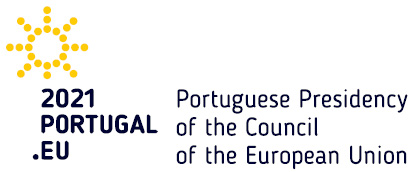About CARDS
 A key external relations’ priority for the EU is to promote stability and peace in the Western Balkans, not only on humanitarian grounds but also because the region’s conflicts are at odds with the wider objective of security and prosperity across the continent of Europe.
A key external relations’ priority for the EU is to promote stability and peace in the Western Balkans, not only on humanitarian grounds but also because the region’s conflicts are at odds with the wider objective of security and prosperity across the continent of Europe.
Since 1991 the European Union has committed, through various assistance programmes, € 6.8 billion to the Western Balkans. In 2000 aid to the region was streamlined through a new programme called CARDS (Community Assistance for Reconstruction, Development and Stabilisation) adopted with the Council Regulation (EC) No 2666/2000 of 5 December 2000.
The programmes wider objective is to support the participation of the countries of the Western Balkans (Albania, Bosnia and Herzegovina, Croatia, Serbia and Montenegro, including Kosovo, under United Nations Security Council Resolution 1244 of 10 June 1999, and the former Yugoslav Republic of Macedonia) in the Stabilisation and Association Process ( SAP)
The Stabilisation and Association Process is the cornerstone of the European Union’s policy towards the region. It seeks to promote stability within the region whilst also facilitating closer association with the European Union. A key element of the SAP, for countries that have made sufficient progress in terms of political and economic reform and administrative capacity, is a formal contractual relationship with EU in the form of a Stabilisation and Association Agreement. The SAP is designed to help each country to progress at its own pace towards greater European integration.
Through the programme € 4.6 billion will be provided to this region in the period 2000 to 2006 for investment, institution-building, and other measures to achieve four main objectives:
- reconstruction, democratic stabilisation, reconciliation and the return of refugees
- institutional and legislative development, including harmonisation with European Union norms and approaches, to underpin democracy and the rule of law, human rights, civil society and the media, and the operation of a free market economy
- sustainable economic and social development, including structural reform
- promotion of closer relations and regional cooperation among countries and between them, the EU and the candidate countries of central Europe.
Since early 2005 the Directorate-General Enlargement has been responsible for managing all relations with the countries of the Western Balkans. This includes political relations and the development and management of the CARDS programme.
European Union assistance in Albania, Bosnia and Herzegovina and Croatia is managed by the European Commission’s Delegations in those countries. The European Agency for Reconstruction (Council regulation No 2667/2000-05/12/200) is responsible for assistance in Serbia and Montenegro, including Kosovo, under United Nations Security Council Resolution 1244 of 10 June 1999, and the former Yugoslav Republic of Macedonia.
At any given time there are hundreds of on-going projects across all sectors, countries and regions, some examples of which are available as case studies.
Annual Programmes
Working on the basis of the political objectives set by the European Commission, the Agency’s annual action programmes detail the context, strategic framework and sector priorities for its work in Serbia.
These programmes go through an approval process involving the European Commission, the Agency’s Governing Board, and the EU Member States’ Cards Committee.
They fit within the EU Country Strategy Paper (CSP) for Serbia & Montenegro for the period 2002-2006, the Multi annual indicative programme (MIP) for Serbia & Montenegro for the period 2002-2004 and the Multi annual indicative programme (MIP) 2005-2006 for Serbia & Montenegro including Kosovo as defined by the United Nations Security Council Resolution 1244.
| Serbia 2006 | – | €144 million |
| Serbia 2005 | – | €154.5 million |
| Serbia 2004 | – | €212 million, April 2004 |
| Serbia 2003 (project overview) | – | €229 million, April 2003 |
| Serbia 2002 (project overview) | – | €170.7 million, March 2002 |
| Serbia 2001 part 2 | – | €50.3 million, October 2001 |
| Serbia 2001 part 1 | – | €143.5 million, May 2001 |
| Serbia 2000 | – | €185 million, November 2000 |



